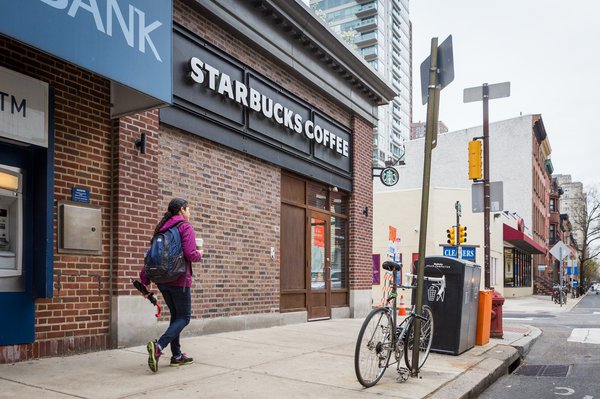Starbucks has once again been ordered to pay a former Philadelphia-area regional manager. After paying $25.6 million two months ago following a wrongful termination lawsuit, the company must now pay her an extra $2.7 million in damages, a federal judge in New Jersey has ruled.
On Wednesday, U.S. District Judge Joel Slomsky ordered Starbucks to pay Shannon Phillips, a former 13-year employee at the company, $2,736,755 in back pay, front pay and tax damages, court records show. The ruling comes after a federal jury in Camden found that the coffee company had violated Phillips' civil rights and a New Jersey law prohibiting discrimination based on race.
- MORE NEWS
- Life after prison proves to be frustrating, even for those only pretending they're trying to get back on their feet
- Glenside's Keswick Tavern shut down, raided by state liquor enforcement
- Pottstown boy, 6, wins national mullet contest for his throwback hairstyle
Phillips filed a lawsuit against Starbucks in 2019, claiming that she was fired from her job for being white. Phillips' termination occurred shortly after two Black men were arrested for not ordering anything at a Center City location she oversaw as a regional manager. (She also oversaw Starbucks locations in Philadelphia, South Jersey, Delaware and portions of Maryland.)
In the aftermath of the arrests and protests against them, Phillips alleged that she "worked tirelessly" on the company's behalf to "repair community relations while ensuring employee and customer safety." Her lawsuit claimed that Starbucks sought to "punish" white employees — even those who played no role in the incident — in an effort to show that the company had properly responded to the arrests.
One of Phillips' supervisors, a Black woman, allegedly told her to place a white employee who oversaw Philadelphia stores on administrative leave over allegations of discriminatory conduct, according to the lawsuit. Phillips claimed she was ignored when she presented information to clear the employee's name.
The lawsuit also alleged that Starbucks did not take steps to punish a Black district manager who was responsible for the store at 1801 Spruce St., where the arrests occurred. Phillips was fired on May 9, 2018, less than one month after the arrests took place.
Starbucks has denied Phillips' claims that she was wrongfully terminated due to her race and did not have anything new to share on Thursday.
On April 12, 2018, Rashon Nelson and Donte Robinson, both 23-year-old Black men, went to Starbucks for an afternoon meeting with a potential business partner. Nelson asked to the use the restroom, but was told he could not because he wasn't a paying customer. After Nelson sat back down, the store's manager asked if the men wanted to order anything. They declined, saying that they were waiting for someone.
At 4:37 p.m., two minutes after Nelson and Robinson entered the coffee shop, an employee called police. Officers arrived by 4:41 p.m. Police told Nelson and Robinson that they had to leave if they weren't going to buy anything. They eventually arrested the men and held them in police custody for about nine hours before releasing them.
"It's a real estate meeting," Robinson told "Good Morning America" at the time. "We've been working on this for months. We're days away from changing our whole entire situation, our lives, and you about to sit here telling me that I can't do that? You're not doing that."
After a video of the arrests went viral online, Starbucks was met with public outcry and protests, with people claiming that the arrests were an example of racial profiling. Kevin Johnson, who was Starbucks' CEO at the time, apologized and traveled to Philadelphia to speak with Mayor Jim Kenney and former Philadelphia Police Commissioner Richard Ross about racial bias.
Nelson and Robinson reached a settlement with the city on May 2, 2018. The men each received $1 and a pledge for a $200,000 contribution from the city to create a youth entrepreneurship program. Later that spring, Starbucks closed its 8,000 stores for a day to put its employees through racial bias training.

